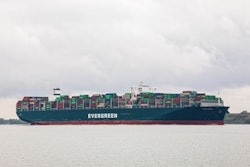
USDA Secretary Tom Vilsack said he hopes Congress will extend the Trade Promotion Authority, which is set to expire on July 1
U.S. Agriculture Secretary Tom Vilsack said this week that the Biden administration would seek renewal of the Trade Promotion Authority (TPA).
According to reports, Vilsack spoke at the Virginia Governor’s Conference on Agricultural Trade, saying he hopes Congress will extend the TPA, which is set to expire on July 1.
“I’m hoping that Congress, during the course of this year, begins to get serious about resuming and extending Trade Promotion Authority, which will then give us the opportunity to complete negotiations,” he said, adding that it is “the only way, eventually, for us to have trade agreements that create that balance.”
The American Feed Industry Association (AFIA) issued a statement in support of Vilsack’s comments.
“The animal feed and pet food industry is encouraged by Secretary Vilsack’s recognition of the importance of TPA renewal and is hopeful it is a signal that the Biden administration intends to take an active and supportive position renewing it. As trade in the animal food sector continues to grow, we applaud Secretary Vilsack for standing behind U.S. agriculture and being the first within the administration to express both the need and support for TPA renewal,” AFIA President and CEO Constance Cullman said in the statement.
“As the Biden administration has stated its focus will be on addressing domestic issues, it is unclear if it will request TPA renewal before its deadline this summer. The AFIA is working to build upon the U.S. animal food industry’s success in exporting feed, feed ingredient and pet food products to countries where there is a need and a desire for these products by encouraging TPA renewal,” AFIA said.
According to the Office of the U.S. Trade Representative, TPA is a legislative procedure, written by Congress, through which Congress defines U.S. negotiating objectives and spells out a detailed oversight and consultation process for during trade negotiations. Under TPA, Congress retains the authority to review and decide whether any proposed U.S. trade agreement will be implemented.
Since 1974, Congress has enacted TPA legislation that defines U.S. negotiating objectives and priorities for trade agreements and establishes consultation and notification requirements for the president to follow throughout the negotiation process. At the end of the negotiation and consultation process, Congress gives the agreement an up or down vote, without amendment. TPA reaffirms Congress’s overall constitutional role in the development and oversight of U.S. trade policy.








